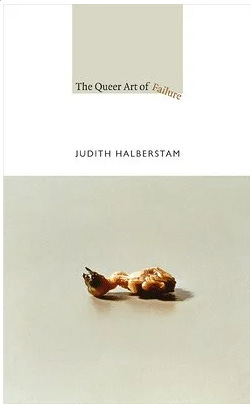71. 🔠 words with friends 🔠
thinking about how to just keep swimming
Hello, and welcome to another Monday of tiny driver.
Last week's verdict in Kenosha reminded me a lot of the sadness that I felt and wrote about last year. Despite the understanding that this is the way many trials of this nature go (read: structural racism in practice), it is still difficult to emotionally process the outcome. I hope that this weekend you took some time to take care of yourself, whether it be through being with loved ones or just simply checking out for a bit. I hope that you are prioritizing your needs and your community right now.
✏️ Still processing.
This section is a continuation of the conversations I've had about antidotes to academic isolation. Previously, I've written about having conversations with the books I read and writing in the form of a letter to a friend. The following is the final antidote I've used so far to ward off feelings of loneliness while writing.
Two weeks ago, I sent the following text to three of my friends, seemingly out of the blue:
This spur of mass texting was brought on by a moment of writing in my process journal, on one of the days when I asked myself: "What must I do to write this and enjoy the process of doing it?" Rather than writing what I had been for the past few days—a warm cup of tea, the pomodoro method to take regular breaks, reminding myself to have faith in the process—I went for some very brutal honesty:
In all honestly, what I need are friends that now far away. I miss the days of college and grad school where I'd go to the library and write around people who had the same goals as me (read: to graduate). If I'm being more specific, I miss going to the library with my friends. We'd work together for a bit, and then walk to a coffee shop as a break from studying. It would be so fun—taking this break with them. Mostly because I would just get out of my own head. I'd be with someone whose company I enjoyed, and get a 15-20 minute break from orienting myself inward.
If there was one thing I learned during the pandemic, it's how much of an extrovert I actually am when push comes to shove. I've found that so much of my joy and energy comes from being in community with the people who I love and cherish. So, it makes sense that I'd also want to infuse this sense of collectivity and shared pursuit during my working hours. I realized that I needed support from my immediate network. I wanted to see someone I knew—and whose goals I knew—plugging away at their screen just as I was plugging away at mine. I wanted to make goals with someone, encourage each other to stay on track, celebrate each others' wins. I needed to feel accountable to someone whose opinion I value in real time. Put simply: I needed to text my friends.
So, that's what ended up happening. I got in touch with a few of my friends who I knew were also writing every day. We spend one morning per week writing together over zoom with our cameras on. For one friend, this has turned into two mornings, which I am so grateful for. This is usually how our mornings go, approximately:
9-9:30AM: Catch up, chat, and set goals for the next hour
9:30-10:30AM: Write together
10:30-10:50AM: Take a break, talk about how the hour went, make new goals for the next hour
10:50-11:50AM: Write together
11:50AM-12PM: Take a break, talk about how the hour went, schedule our next writing time together
Turns out, filling my mornings with writing and breaks with loved ones actually energizes me. In fact, I would say that I feel better at 12PM on these days than I do when I try to write for a solid block of 3 hours alone. It feels go to see my friend's face at the top right of my screen, bopping to a song on her headphones, reminding me that we are both sitting here together.
The power of writing together with friends over zoom has also allowed me to continue this practice while working in my office. I've made my office—whose "after" I'm hoping to show you in the coming weeks—into a cozy space of warmth and comfort. It also has my large display screen and all my books and a whiteboard and my desk space. I've realized how much I've come to rely on these little comforts, and writing with friends over zoom allows me the comfort of being in community with someone I love while also continuing to work in a way that is physically most comfortable for me.
This has probably been the biggest game changer for me, and it all came from a few sentences in my process journal. If you don't do so already, I recommend asking yourself, "What do I need today to enjoy writing?" and answer with deep, introspective honesty.
📚 Still reading.
Halberstam, Judith. The Queer Art of Failure. Durham: Duke University Press, 2011.
I've really been on a queer theory kick lately. (Spoiler: It's probably not going to stop in the coming weeks either. 🥰 ) I decided to pick up this book by Halberstam because the title greatly intrigued me—what is failure in this context, and can we conceptualized failure as embedded in queered ways of being?
Halberstam takes the reader through various iterations of failure—uncertainty, forgetting, stupidity, negativity, and passivity, among others—as a way of conceptualizing potential alternatives of being within oneself and in community with others. By establishing that the ideas of "success" and "failure" are inherently tied to a heteronormative understanding of society and its capitalist functions, we can then understand "failure" in its various forms as inherently queer. It resists the idea of achievement and success within the structures of society (and even the academy). Not only that, but Halberstam shows the ways in which "failure" actually opens up alternative ways of knowing and connecting. In order to think through these new avenues of knowing, they engage the work of photographers like Brassai and Collier Schorr, as well as animated films such as *Chicken Run—*which they describe as "one of my favorite feminist texts of all time" (128)—and Finding Nemo. One of the most engaging chapters to read for me was the one where Halberstam unpacks the idea of "Pixarvolt," or those 3D, CGI animated films that make subtle connections between "communitarian revolt and queer embodiment" (29).
This particular text is outside my usual disciplinary wheelhouse, which is what made it such fun to read. While I may not be performing close readings of animated Pixar films, literature, or high-concept art, one of the aspects of Halberstam's work that keeps me coming back is their writing style. There are many times throughout the text when they refer to their archive as replete with "silliness." (The entire book opens, for instance, with a close reading of a scene from Spongebob Squarepants. This playful nature can also be found in their diction, sentence structure, and overall voice as well.
Take this sentence that is merely one meant to signpost a organizational transition:
I will return to Dory and her fishy forms of forgetting later, but I will start with some basic premises about stupidity. (55)
Or this passage meant to disentangle the word "failure" from George W. Bush, considering the radical potential the former has:
We would all agree that George W. deserves to enter the annals of history under the category of failure, and yet failure is a lofty word for Bush, since it implies that he had a plan and then failed to execute it. In actual fact what is stunning about Dubya is how far he went on so little. (94)
In the margins, I wrote LOL, something I don't think I've done in a long while for an academic text. I actually wrote LOL in the margins quite a few times. It reminded me that despite the important—dare I say "serious"—political and intellectual stakes of the work that we try to produce, it is important to have fun within the writing itself, to be playful. I found myself deeply persuaded with Halberstam's arguments—not only because they are such an interesting thinker, but also because the way they write is so enjoyable to read.
🌀 Still consuming.
In the bookshop:
Currently Reading: Detransition, Baby by Torrey Peters
On Deck: Wild Seed by Octavia Butler
I feel both embarrassed and validated by the above tweet.
A zine on intermissions from Austin Kleon.
The East Bay Alternative Book & Zine Fest is going to be partly virtual! If you're not local to the Bay Area, you can still participate int he shenanigans and meet fellow zinesters from December 11-12. Check out the details on their website.
The writing prompt from last weekend's Isolation Journals was just fantastic:
Copy and paste a poem you love into Google Translate. Translate it from English to a different language and then back to English. Now send it through two languages—see if you can “trick” the translation program into getting different or new meanings from old, familiar words. You can also try this with some writing of your own—maybe a poem or a short piece from your journal. Let the translations suggest a different way of saying what you mean.
Then consider this question: What got lost and found in translation?
📖 Book club corner.
For November's book club, we will be reading Hola Papi by John Paul Brammer! Thank you to everyone who voted, and feel free to purchase a copy of the book here! Details are below.
Here’s the event info:
Date & Time: Tuesday, November 30 @ 5PM PST/8PM EST
Registration Link!
Suggested Donation (for those able to donate): $3-10 through Paypal or Venmo (@idyalz)
🐶 A pup-date.
I took a "headshot" of Higgins over the weekend. It's clear he loves a close up:
As always, thanks so much for reading through, and I'll see you in the next one!
Warmly,
Ida








I love that you found cowriting buddies! Thanks for sharing the power of reaching out <3